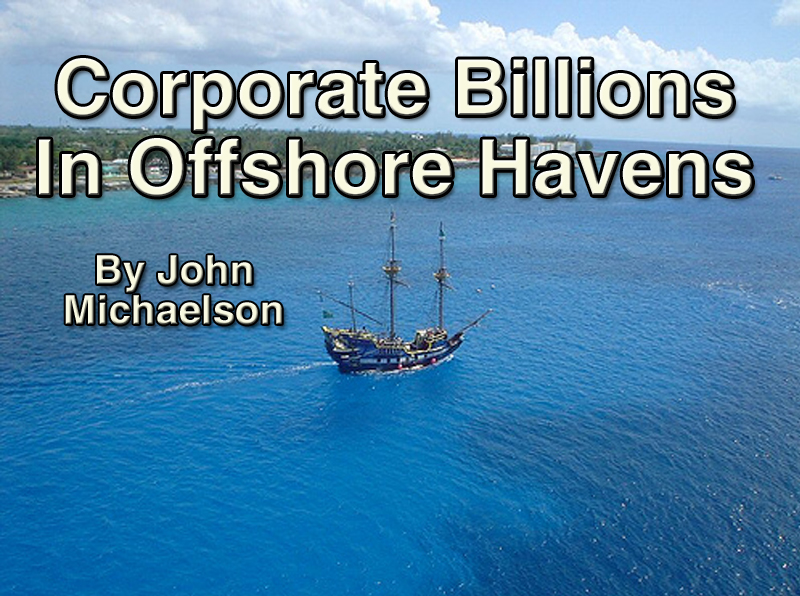Loopholes Costs U.S. $150 Billion a Year
 AUSTIN, Texas – As Texas taxpayers raced to beat the midnight filing deadline on April 15, another year has come and gone with the nation losing out on billions of dollars because of offshore corporate tax havens. The loopholes that allow for the hiding of income need to be closed, according to many citizens, businesses and groups, including the American Sustainable Business Council. CEO David Levine declared that it is time to level the playing field.
AUSTIN, Texas – As Texas taxpayers raced to beat the midnight filing deadline on April 15, another year has come and gone with the nation losing out on billions of dollars because of offshore corporate tax havens. The loopholes that allow for the hiding of income need to be closed, according to many citizens, businesses and groups, including the American Sustainable Business Council. CEO David Levine declared that it is time to level the playing field.
“Many of the small and medium and even the large responsible companies are paying their fair share of taxes, whereas some of the large multinational corporations are hiding their profits overseas and not paying any taxes back in this country,” he said.
It’s estimated that every year, corporations and wealthy individuals in the U.S. avoid paying $150 billion in taxes by using complicated accounting tricks to shift their profits to offshore tax havens.
Levine said that lost revenue has negative effects on the nation from coast to coast because it could be used for deficit reduction or needed investments.
“The funding at the local, state and national level for infrastructure, from transportation to energy to support for education systems, that funding is just not going to be there because of the large amounts of funds in these tax havens,” he explained.
Also in support of closing the loopholes are a majority of the nation’s small-business owners. A new poll found that three-fourths of those owners, of all political persuasions, want to see Congress act to stop the abuse of offshore tax havens.
Among them is Mitch Rofsky, owner of Better World Club, an eco-friendly provider of insurance and roadside assistance, who called the current system “egregious” on a number of levels.
“The first is just a question of not paying American taxes on real earned income,” he said. “And then, related to that, you could set up phony offices in the Cayman Islands and avoid paying legitimate taxes that way, as well.”
Legislation that would close offshore tax haven loopholes already has been introduced in the U.S. Senate and a similar bill in the U.S. House is expected to be introduced.
More information is at bit.ly/10MfxlB.
Corporate Billions In Offshore Havens
Loopholes Costs U.S. $150 Billion a Year
“Many of the small and medium and even the large responsible companies are paying their fair share of taxes, whereas some of the large multinational corporations are hiding their profits overseas and not paying any taxes back in this country,” he said.
It’s estimated that every year, corporations and wealthy individuals in the U.S. avoid paying $150 billion in taxes by using complicated accounting tricks to shift their profits to offshore tax havens.
Levine said that lost revenue has negative effects on the nation from coast to coast because it could be used for deficit reduction or needed investments.
“The funding at the local, state and national level for infrastructure, from transportation to energy to support for education systems, that funding is just not going to be there because of the large amounts of funds in these tax havens,” he explained.
Also in support of closing the loopholes are a majority of the nation’s small-business owners. A new poll found that three-fourths of those owners, of all political persuasions, want to see Congress act to stop the abuse of offshore tax havens.
Among them is Mitch Rofsky, owner of Better World Club, an eco-friendly provider of insurance and roadside assistance, who called the current system “egregious” on a number of levels.
“The first is just a question of not paying American taxes on real earned income,” he said. “And then, related to that, you could set up phony offices in the Cayman Islands and avoid paying legitimate taxes that way, as well.”
Legislation that would close offshore tax haven loopholes already has been introduced in the U.S. Senate and a similar bill in the U.S. House is expected to be introduced.
More information is at bit.ly/10MfxlB.